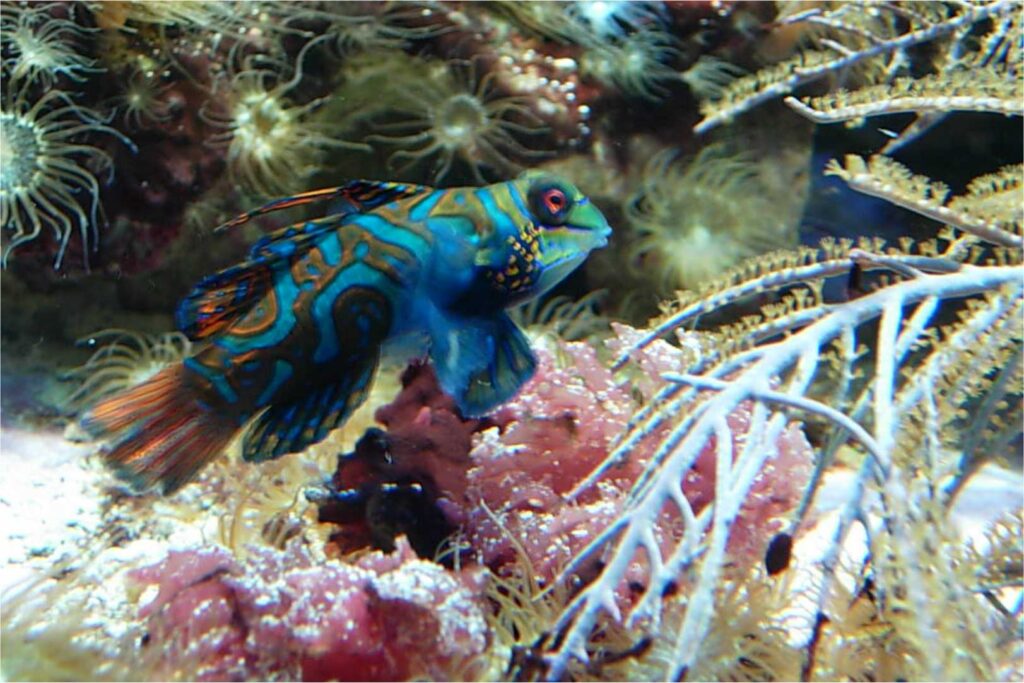
The Kayankerni Reef, located in Sri Lanka’s Batticaloa District, is a marine sanctuary spanning 953 hectares, home to over 200 species of stony corals and 900 species of reef-associated fish. Its rich biodiversity supports the livelihoods of local fishing communities and boosts tourism in the region. Despite its ecological significance, the reef faces multiple threats, including overfishing, destructive fishing practices, unregulated tourism, and coral bleaching. The Life to Our Coral Reefs project, implemented under the Department of Wildlife Conservation and guided by IUCN’s Global Standard for Nature-based Solutions (NbS), seeks to restore reef health while enhancing sustainable livelihoods for the local communities.
A Two-Day Immersive Experience
On 5th and 6th December 2024, Biodiversity Sri Lanka (BSL) led a field visit to the Kayankerni Seascape, bringing together representatives from nine BSL member companies to witness firsthand the conservation efforts under the Life to Our Coral Reefs project. This initiative, designed to restore coral ecosystems and strengthen community resilience, aims to engage the private sector in marine conservation while promoting sustainable economic opportunities for coastal communities.
With four companies already committed as project partners, this visit played a pivotal role in fostering corporate engagement, deepening understanding, and identifying further collaboration opportunities.
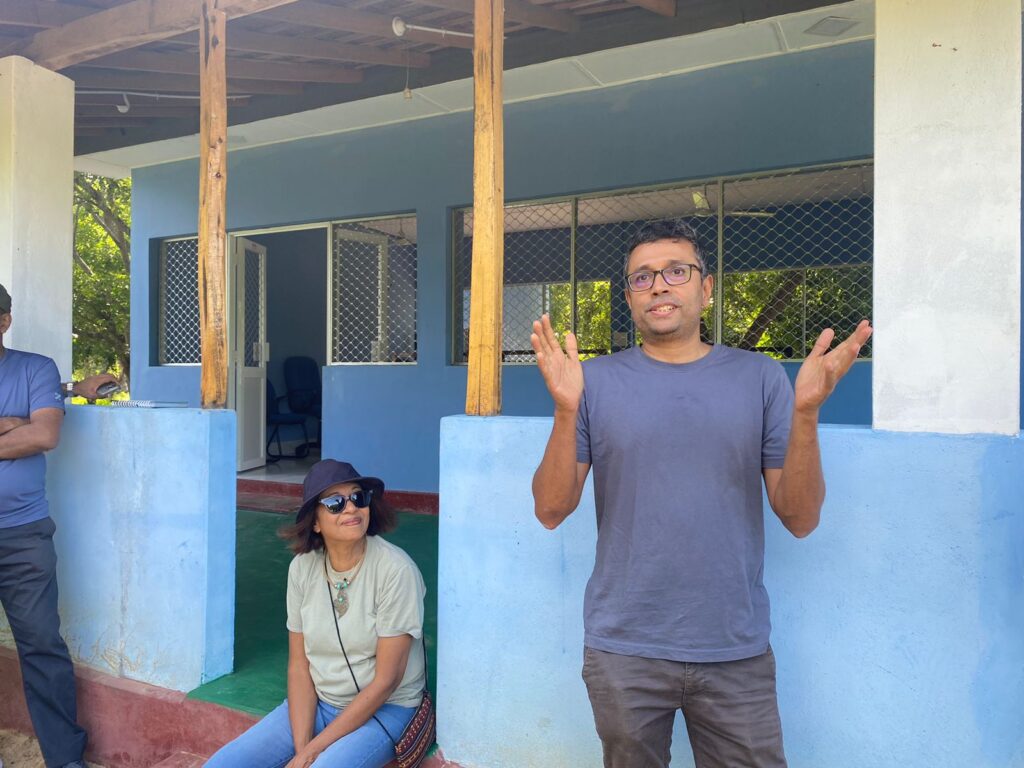
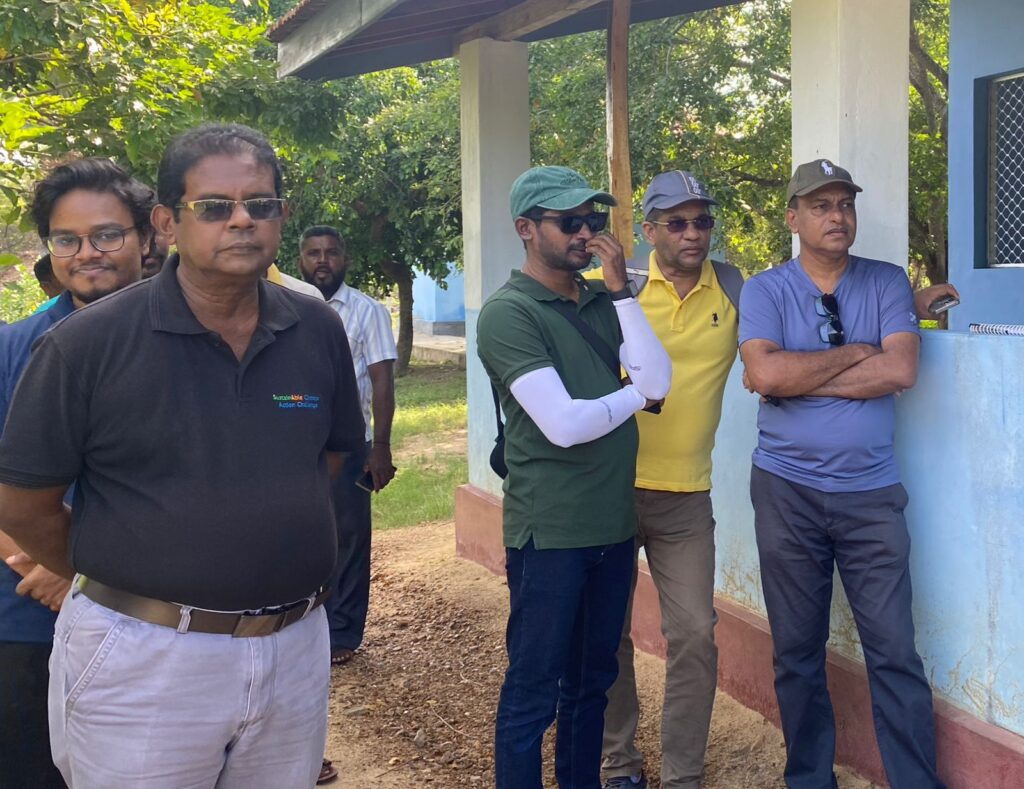
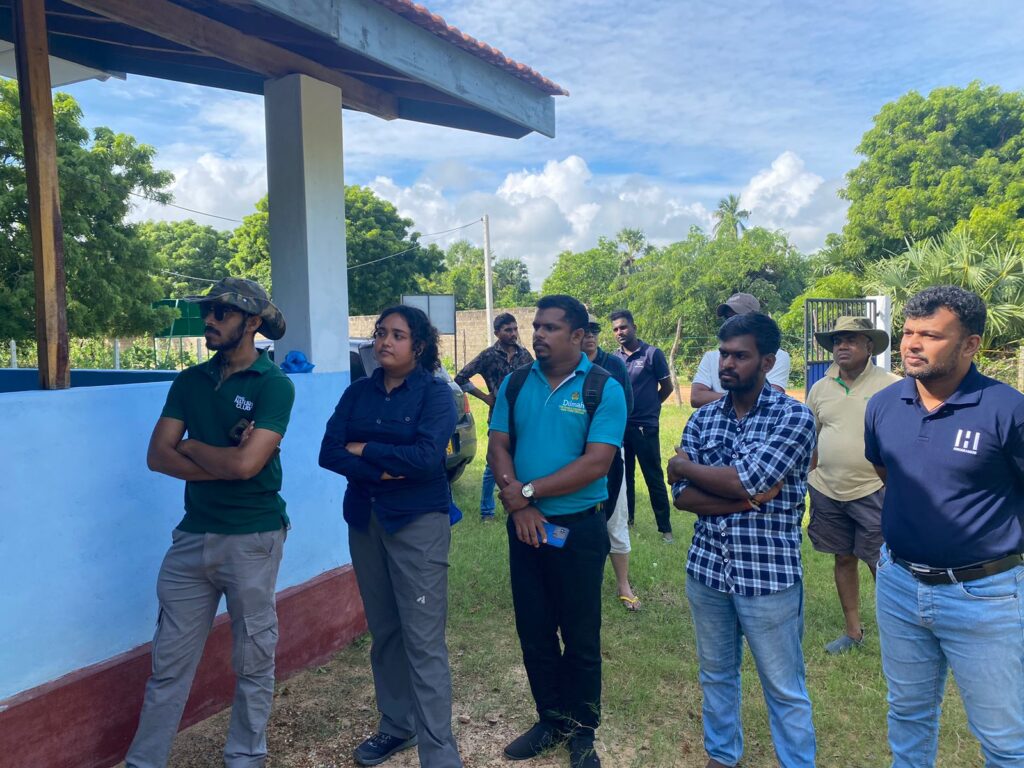
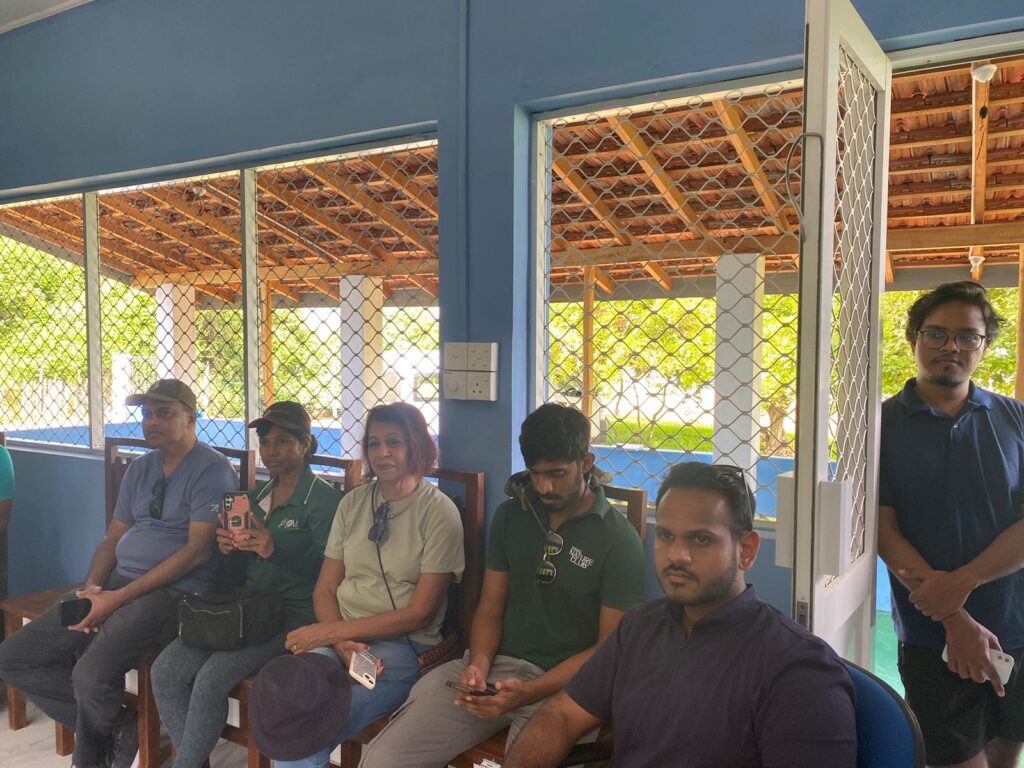
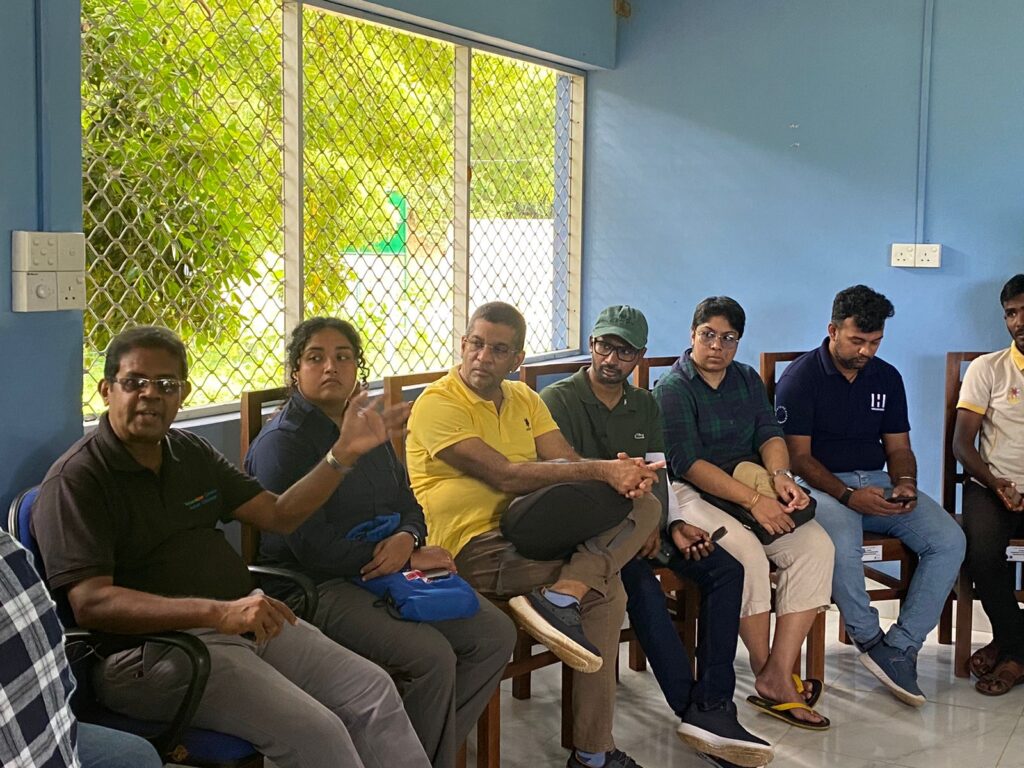
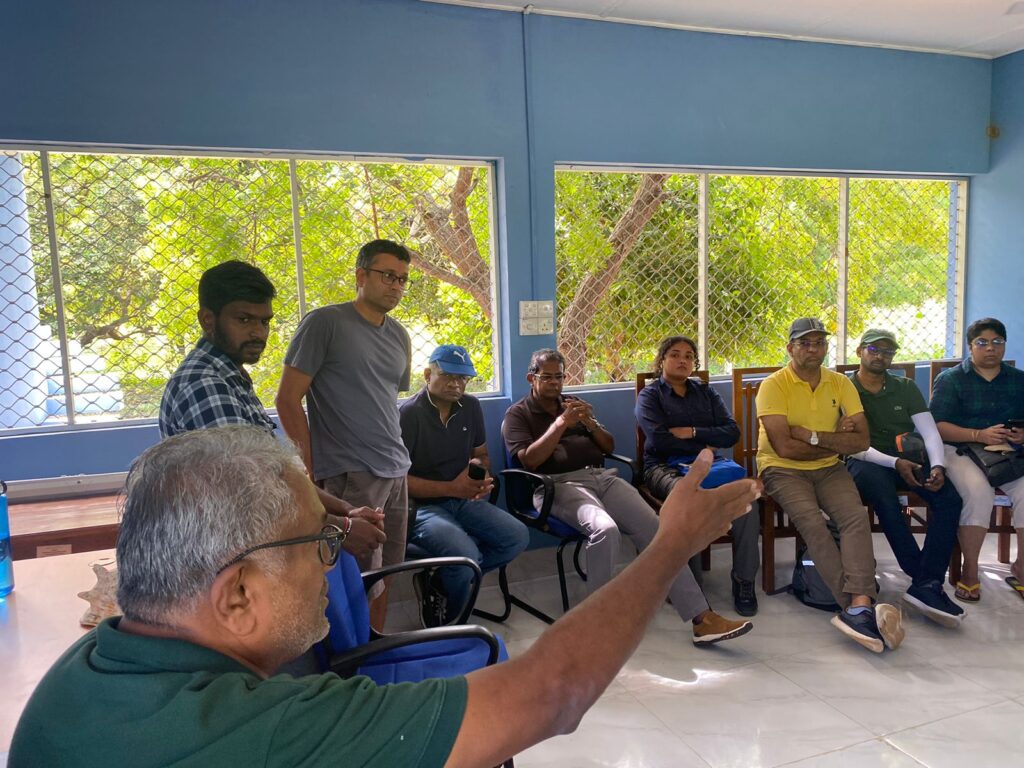
Day 1: Journey to Kayankerni
The field visit commenced on 5th December, with participants gathering at the Ceylon Chamber of Commerce in Colombo before departing for Kayankerni. A stop in Dambulla provided an opportunity for informal networking over dinner, setting the stage for deeper discussions on conservation and business engagement. The group arrived at Malu Malu Resort & Spa, Pasikudah, late in the evening.
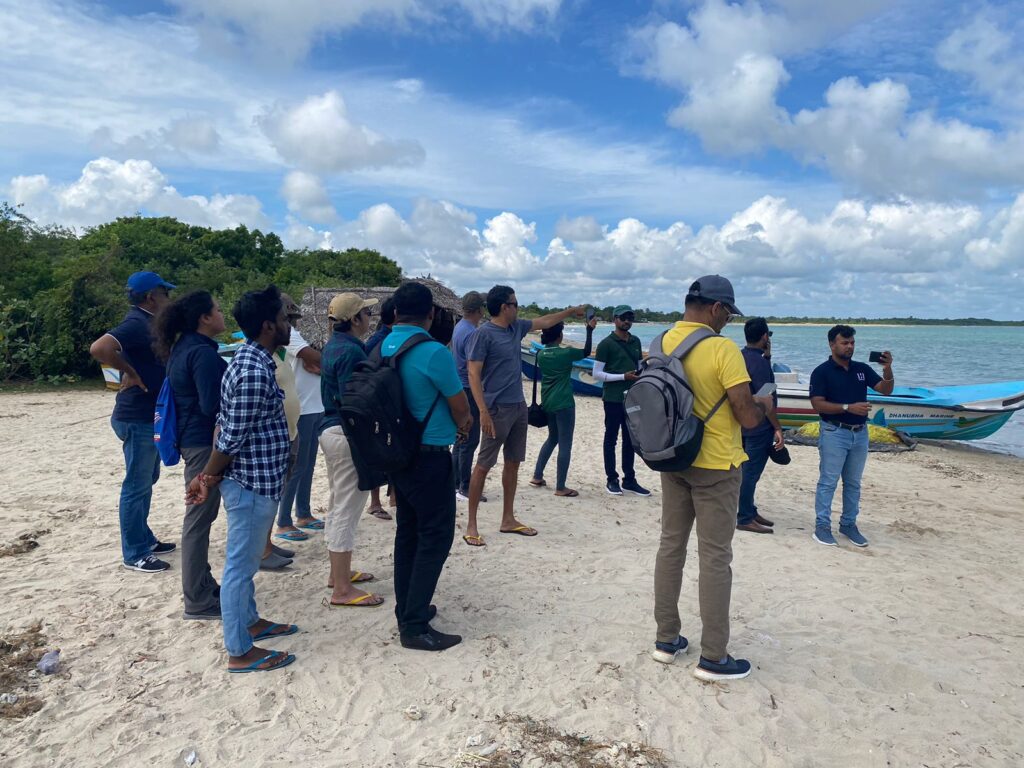
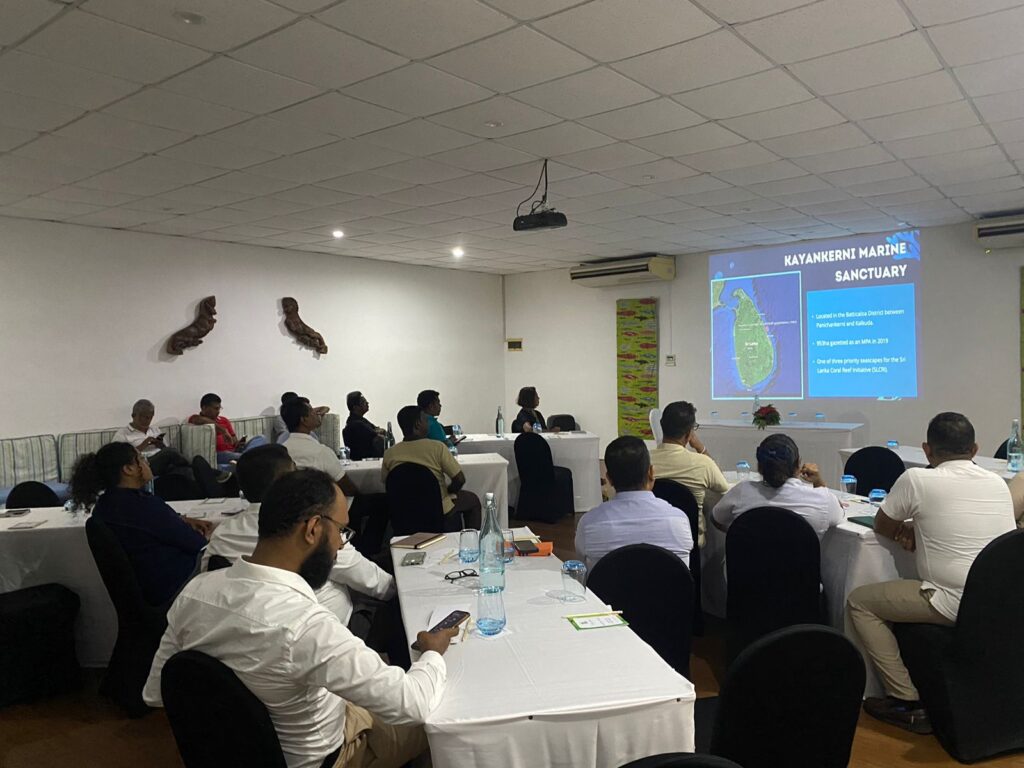
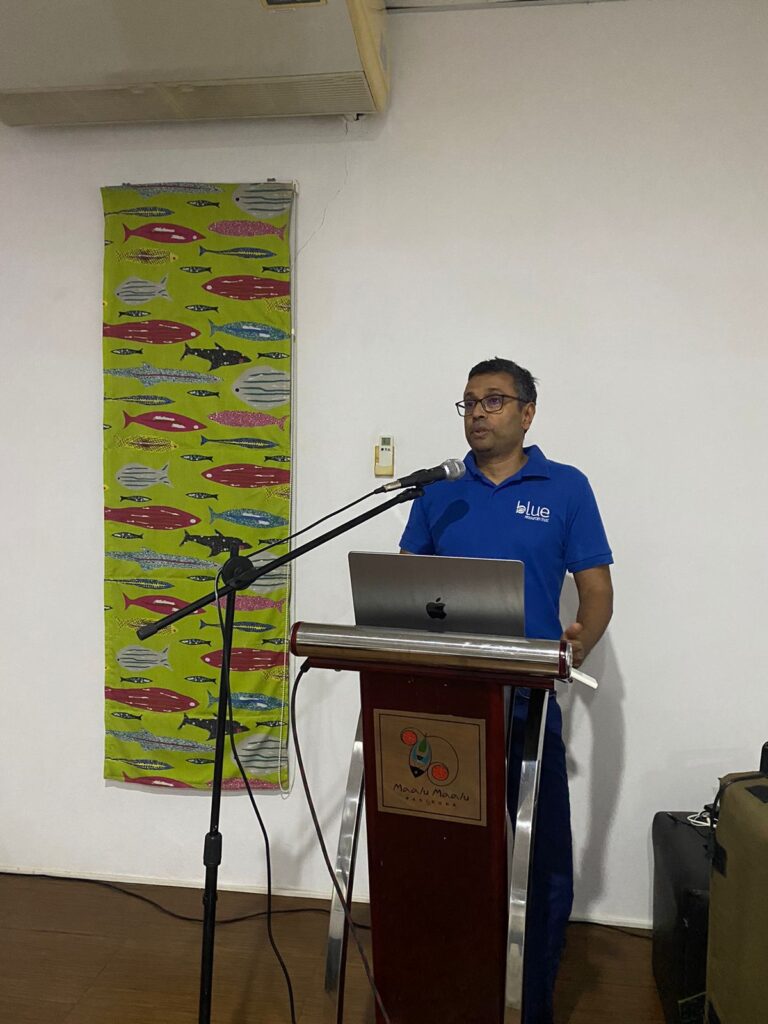
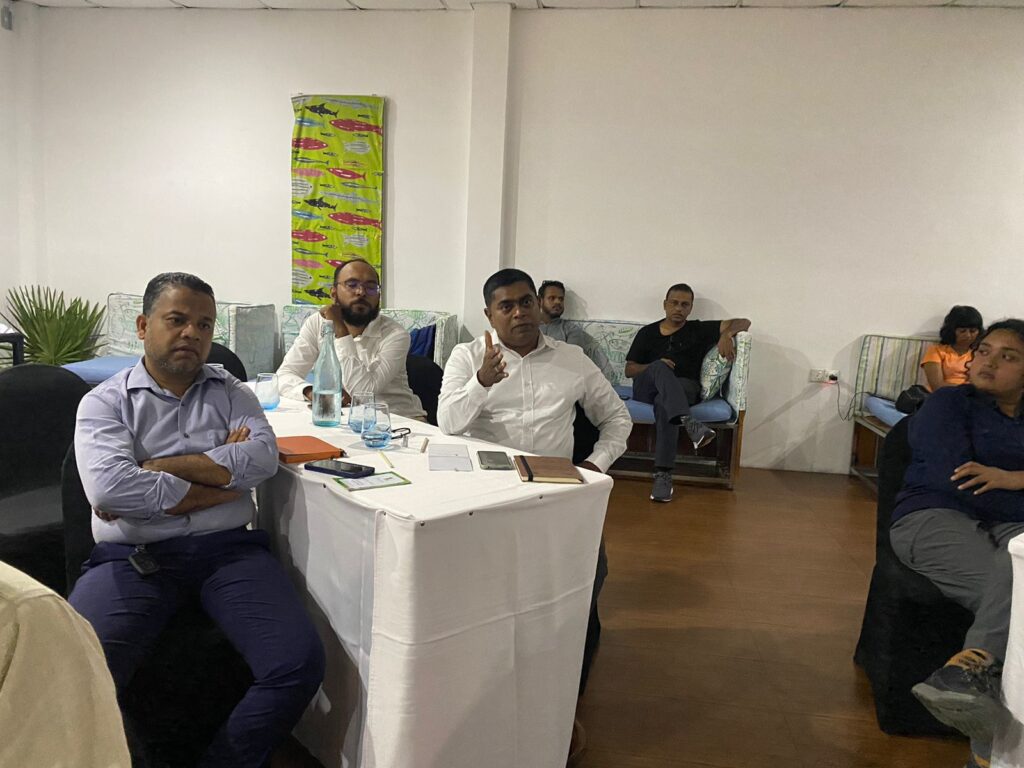
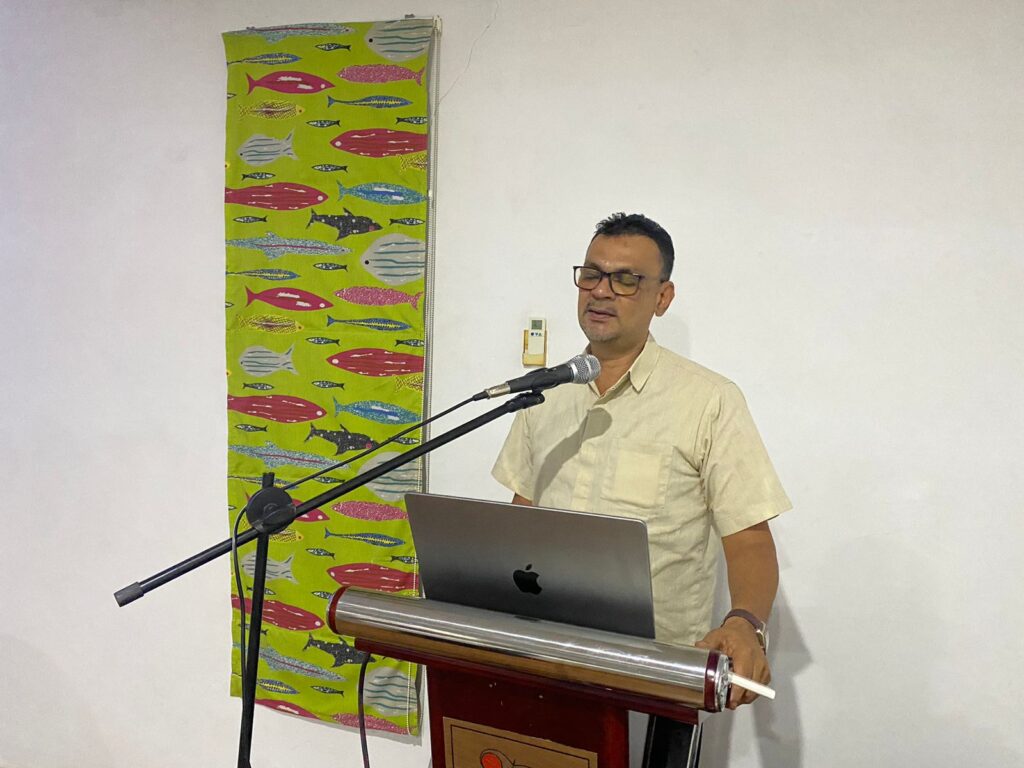
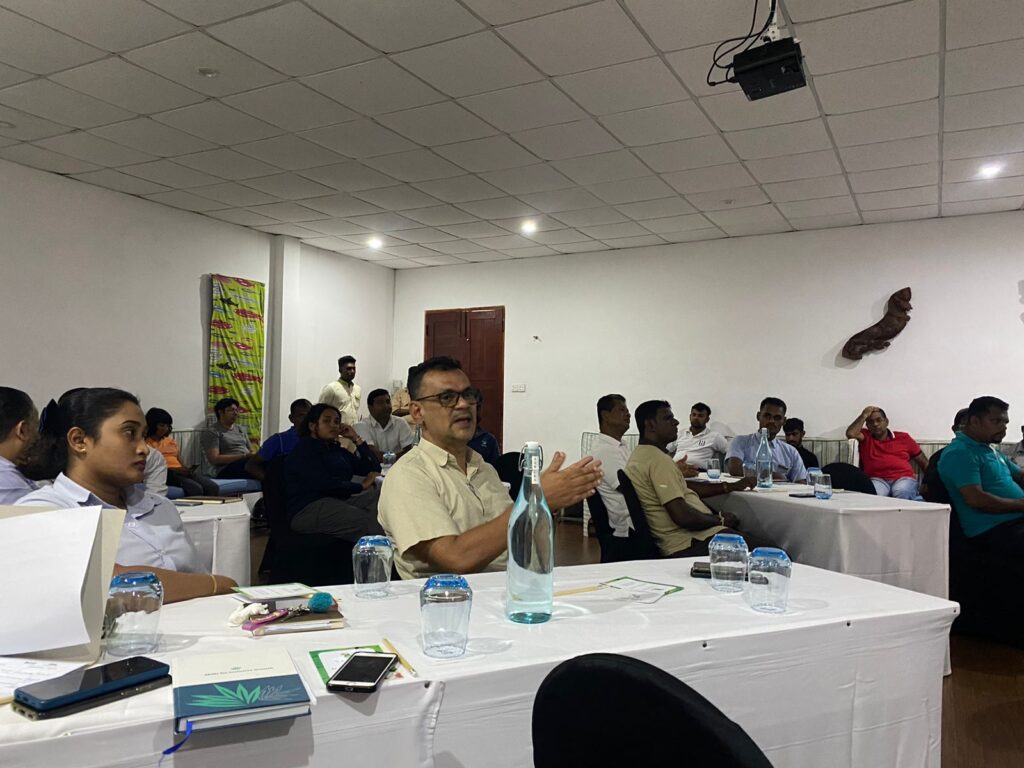
Day 2: Exploring the Reef and Engaging with Local Communities
On 6th December, the team departed for Kayankerni early in the morning for an interactive field awareness session. Conducted by Blue Resources Trust (BRT), the project’s implementation partner, this session highlighted:
✅ The ecological importance of the Kayankerni Reef.
✅ The role of coral conservation in protecting biodiversity.
✅ How the project aligns with local socio-economic development.
Following the awareness session, a focused group discussion took place between the corporate participants and members of the Kayankerni Fishery Association. The discussion explored sustainable livelihood options that would allow local communities to reduce their dependence on fishing practices that harm the reef.
🌱 Key Takeaway: The community expressed strong interest in shifting to biodiversity-friendly livelihoods, but lack of market demand has hindered previous efforts. The project aims to bridge this gap by promoting eco-tourism and sustainable business models.
Experiencing Nature-Based Solutions Firsthand
Kayak Tour through Mangroves
To provide a hands-on experience, participants embarked on a guided kayak ride through the mangrove ecosystems of Kayankerni. This immersive activity showcased the biodiversity of the seascape and highlighted the potential for developing a formal kayak trail as a sustainable tourism initiative. The kayak ride served as a preliminary trial, with participants providing valuable feedback on how this initiative could be improved to attract eco-tourists.
Community-Hosted Lunch
A traditional meal prepared by the local community gave visitors a taste of Kayankerni’s culinary heritage. This experience further underscored how local food tourism could be integrated into eco-tourism models to generate alternative income sources for the community.
Engaging with the Hospitality Sector
Following the site visit, the team returned to Pasikudah for a strategic meeting with the Pasikudah Hoteliers’ Association. This discussion focused on how sustainable tourism could be leveraged to support coral conservation and community development.
Key Insights from the Hoteliers:
✔️ Hotels are open to promoting eco-tourism in Kayankerni.
✔️ A structured tourism strategy with clear branding and safety measures is essential to attract visitors.
✔️ There is strong potential for collaboration between local businesses, hotels, and conservation partners.
By integrating sustainable tourism practices, the hospitality sector can become a key player in reef conservation, ensuring long-term economic and environmental benefits.
Observations and Key Takeaways
🔹 Corporate Engagement is Growing – The visit reinforced the role of private sector partnerships in conservation, with four companies already signed up as project partners and more expressing interest.
🔹 Alternative Livelihoods Need Market Support – While eco-tourism and sustainable fisheries hold promise, demand generation and branding will be crucial for success.
🔹 Tourism Can Be a Game-Changer – A well-structured eco-tourism strategy could provide long-term financial sustainability to conservation efforts and local businesses.
🔹 Collaboration is Essential – Stronger engagement between businesses, conservationists, government agencies, and local communities will be needed to ensure project success.
Strengthening Partnerships & Moving Forward
The Life to Our Coral Reefs project is a long-term initiative that will require sustained corporate engagement, local participation, and conservation expertise. Based on the insights gained during the site visit, BSL and its partners will focus on:
📌 Formalizing corporate partnerships to secure financial and technical support.
📌 Developing a sustainable eco-tourism model, including the kayak trail and local food experiences.
📌 Strengthening engagement with the Pasikudah hospitality sector to integrate reef conservation into their operations.
📌 Providing skills training and market linkages to ensure sustainable livelihoods for coastal communities.
Join Us in Protecting Sri Lanka’s Reefs!
BSL invites businesses, conservation organizations, and individuals to become a part of this impactful initiative. By working together, we can restore our reefs, support communities, and promote sustainable business practices that benefit both people and nature.
#BSL #LifeToOurCoralReefs #Kayankerni #CoralConservation #SustainableTourism #EcoTourism #ProtectOurOceans
#Dilmah #CDB #CommercialBank #SpaCeylon #CinnamonHotels #Hirdaramani #DIMO #NDB #BlueResourcesTrust



